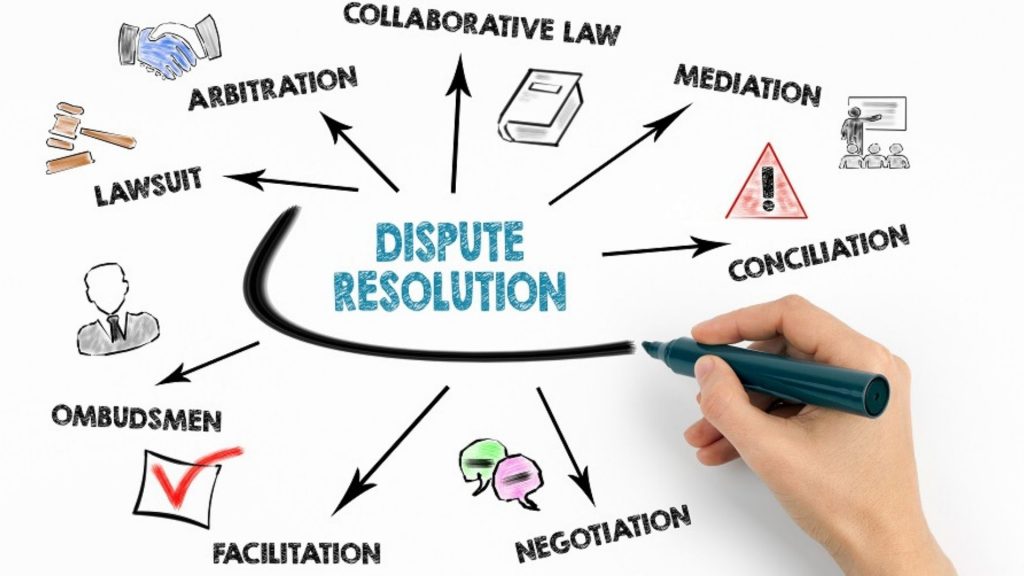Dispute resolution and its types. Dispute resolution is the process of resolving disputes between parties. The term dispute resolution is sometimes used interchangeably with conflict resolution, although conflicts are generally lengthier than disputes. Dispute resolution techniques assist the resolution of antagonisms between parties that can include citizens, corporations, and governments.

Dispute Resolution And Its Types
Mediation
Mediation is a basic type of dispute resolution that varies from arbitration. The goal of mediation is for a relatively neutral third party to assist disputants in coming to a general opinion. Here, both parties will be served by a professional mediator whose goal is to provide the parties together and find a solution where both parties can agree on an outcome.
The key to this alternative dispute resolution process working efficiently is to ensure that the parties in dispute should both agree to the resolutions proposed by the mediator. The mediator cannot force the resolution on the parties but can only offer a suggestion. Rather than imposing a solution, a professional mediator works with the conflicting sides to explore the interests underlying their positions.
Mediation has become a well-known form of dispute resolution in areas like child custody, parenting time, child support, and family law cases. These days mediation is also much searched for after in employment disputes and business-related challenges.
Arbitration
In arbitration, a neutral third party serves as a judge who is responsible for resolving the dispute. Arbitration involves a more court-like system approach. In arbitration, a qualified arbitrator will hear both sides of the parties before coming out with a resolution. The arbitrator listens as each side argues its case, presents relevant evidence, and makes a binding decision. The disputants can negotiate virtually any aspect of the arbitration process. Arbitrators deal with decisions that are usually confidential and cannot be appealed.
Arbitration is a selection made by both parties who have agreed to go through the alternative dispute resolution process. The parties also have to agree on who the arbitrator will be. This is different from a court system where a judge is assigned to the case. An attorney, a retired judge, or an expert in the field of alternative dispute resolution is usually chosen as the arbitrator. Some parties misunderstand that there will be a win-win situation.
Arbitration is most commonly used to resolve conflicts in banking disputes, intellectual property disputes, medical malpractice, employment harassment, discrimination cases, and construction contracts.
Family Dispute Resolution
Family dispute resolution, also known as family mediation, allows divorcing families to settle child custody disputes without going to court. Time spent with parents, grandparents, and other family members, living arrangements, religion, schooling, holidays, extra-curricular activities, and so on are all examples of disputes. Disputes are resolved first and foremost in the best interests of the children, and where possible, in ways that suit parents or guardians and other family members.
In family dispute resolution, an impartial and independent professional can assist family members in having constructive discussions in order to reach their own conclusions.
Final Thoughts
ADR is typically less expensive and faster than filing a lawsuit and going to court. As long as communication between the disputing parties has not irreparably broken down, it should be considered as a more efficient method of reaching an outcome. It also helps to maintain some privacy in comparison to the more public nature of court proceedings. Arbitration is becoming a more appealing option for businesses because it allows any matters to be kept confidential, preserving the reputation of the individuals or businesses involved.









